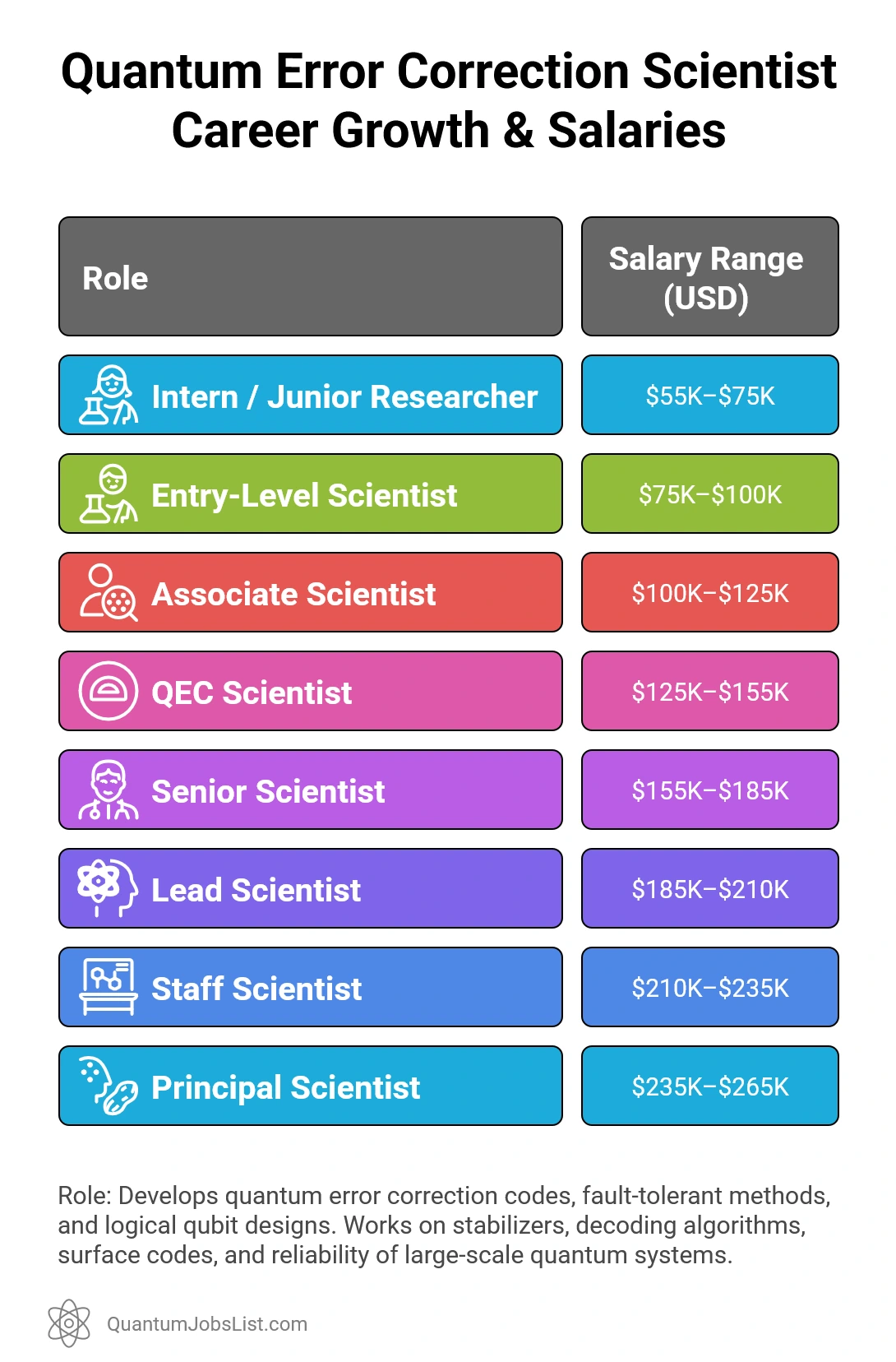A Quantum Error Correction Scientist devises innovative methods and implements advanced codes along with fault-tolerant techniques to achieve reliable quantum computations. They find ways to protect fragile quantum states from changes & from mistakes that current quantum systems make. This helps ensure reliable calculations.
Quantum error correction scientists have a global earning potential of between $95,000 and $185,000. This varies depending on one's level of expertise and geographical location. As error rates in quantum systems constitute one of the main obstacles to realizing the practical use of scalable quantum computing, this role becomes critical.
The global count of quantum error correction scientists is between 1,200 and 1,500, which makes this one of the most specialized areas in quantum computing. Such scientists often have a doctorate in said fields with a focus on quantum information theory and have researched error correction. Companies such as IBM, Google, and Amazon focus their investments on the error correction problem since it is pivotal to the feasibility of quantum computing.
Suggested Read: Top Quantum Error Corrections Jobs and Career Roadmap

What is the average base salary?
Min. Qualifications
What You Need to Know
Why are Quantum Error Correction Scientists important?
They solve quantum computing's biggest challenge - error rates that destroy calculations. Without effective error correction, practical quantum computers cannot scale beyond current 100-1000 qubit systems to the millions needed.
What is the average salary for a Quantum Error Correction Scientist?
Quantum Error Correction Scientists earn $95,000-$185,000 globally. American positions average $150,000 a year, while European roles are around €122,000, and remote positions are at $145,000 annually.
What qualifications are needed to become a Quantum Error Correction Scientist?
A PhD in Physics, Computer Science, or Mathematics is required. Research experience in quantum error correction, quantum information theory, and published work in fault-tolerant quantum computing are valuable to have.
What does a Quantum Error Correction Scientist do?
Quantum Error Correction Scientists develop codes and protocols to fix errors in quantum computations. They protect fragile qubits from decoherence and enable reliable large-scale quantum computing.
More Quantum Job Salaries
Cryogenic Engineer (Quantum Systems)
Builds ultra-low temperature systems for quantum hardware, earning $90,000-$185,000+.

Quantum Control Engineer
Designs and tunes quantum hardware control systems, earning $95,000-$190,000+.

Quantum DevOps Engineer
Manages quantum infrastructure and pipelines, earning $90,000-$180,000+.

Quantum Solutions Architect
Designs enterprise-ready quantum systems, earning $100,000-$210,000+.

Quantum Product Manager
Leads quantum product vision and delivery, earning $100,000-$220,000+.

Quantum Technical Writer
Creates documentation, and technical content for quantum computing products and research.


.svg)
.svg)

